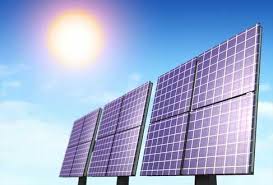Education programmes of job
Electrical Engineering Renewable Mechanical Energy Engineering
Mechanical Power Engineering
Renewable Electrical Power Engineering

Nature of work
A power engineer or a power systems engineer, works within the broader field of energy engineering and his/her job primarily involves designing and developing renewable energy efficient power grids and utility systems. He/she implements ways to integrate renewable power technology. He/she is often involved in public sector projects. A power engineer is responsible for maintaining a network of components which convert different forms of energy into electricity and for managing any of the three main subsystems of power engineering: the generation subsystem, the transmission subsystem, or the distribution subsystem. An engineer is also responsible for the electrical devices that are attached to their systems, which include transformers, generators, and motors. A power engineer's duties typically include making sure that all the devices are functioning properly. Also, he/she should work according to safety regulations. Environment of work
Creating power grid technology is the main daily duty of a power engineer, whether he/she is employed at power plants, industrial facilities. A power engineer is responsible for making sure that power grids are ready for operating and that all the elements, including generators, turbines, pumps, air conditioning systems, and heat exchangers, are working properly and fit to the relevant safety regulations and quality standards. He/she will typically meet with other engineers and clients to discuss current or future projects, and inspect existing installations to make sure that everything is working properly. When preparing to install new systems, he/she will usually perform detailed calculations and analyses to determine the specifications and standards for construction, installation, or manufacturing. He/she frequently stands, lies, or kneels in awkward positions and works on scaffolds or ladders. Noise and vibrations are common when engines are being tested, so ear protection is necessary. He/she usually works full time on rotating 8-hours shifts. Overtime and weekend work is common. Professional life
A power engineer works for power plants, large industrial plants and commercial and residential areas. He/she is also hired by businesses and governmental projects in which large power grids are going to be integrated.Range of typical starting salaries: 40000 SYP plus potential bonuses.
Getting the job
Most people enter the profession with a degree in power and energy engineering or mechanical and production engineering. Entry may also be possible with other engineering degrees, particularly mechanical engineering. Other relevant subject areas include:Electrical engineering, electromechanical engineering, building services engineering, aeronautical engineering.
Skills
A power engineer not only has to own his/her current skills, but also is willing to gain new ones. Understanding how automation of systems operates allows for greater proficiency. One of the upcoming components of power engineering is an increased demand for computer and software engineering. Good understanding of cyber security and having internet skills will be an expectation of any employer. It is important that a power engineer is willing to think outside of the box. Power engineering is an evolving profession, and it is used to be a sub discipline of electrical engineering before it emerged as a field in its own right. A growing number of power engineers who are working on projects involve in integrating green technologies for the purpose of reducing energy consumption and increasing energy efficiency, so it is essential that the engineer keeps up to date with latest research and technologies in this sector. Sources and references
If you need any further information on what is included in this file, you can visit the following websites:· www.power-eng.com, Read the latest power engineering technology, news, and feature articles for electric power generation.
· www.nerc.gov.sy, National Center of Energy researches.
· The Order of Syrian engineers, Damascus, Tel: 6627256
· www.arab-eng.org, Arab Engineers Forum.
· Arab Standard Classification of Occupations, 2008, Ed. Arab Labor Organization.
Summary
A power engineer is a person skilled in the overall operation of a power plant or process. This includes operation of high and low pressure boilers and related areas such as: water treatment, pump operation, instrumentation, electricity, fuels and combustion, air compressors, maintenance, housekeeping and refrigeration.Power Engineering is not an apprenticeship trade; however it is divided into levels of skills and training.
